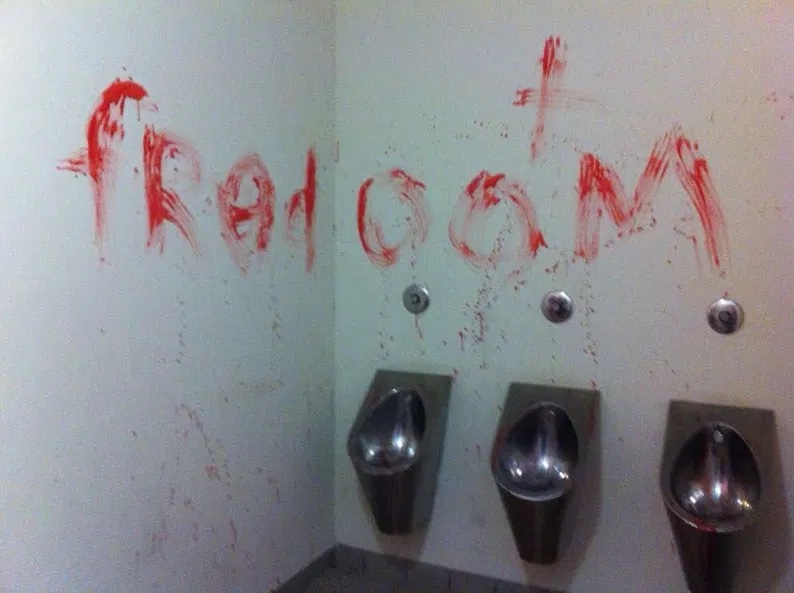
Sunday, March 16, marked the first year anniversary of Cyprus’s crash program in austerity. The troika – the European Commission, the European Central Bank and the International Monetary Fund – in its infinite wisdom forced Cyprus to welcome a raid on all its bank deposits by means of a tax on all deposits. While that particular, and particularly destructive, policy was rescinded, other measures remain in place. Two weeks ago, Cyprus Parliament approved massive and deep privatization of public services. What does not close is the prison.
Last week, in response to two reports, the European Parliament backed resolutions critical of the Troika’s lack of democratic accountability. For Liem Hoang-Ngoc, co-author of one report, Cyprus is a prime example of the Troika’s anti-democratic practices and mentality: “If there had been open debate at the European Parliament, the Eurogroup would never have suggested that Cyprus tax deposits under 100,000 euros… Macroeconomic goals have not been realized: growth is sluggish and debt has skyrocketed. We underlined the disagreements among the members of the Troika, proving that other politics were possible. The message I wanted passed is that the politics of austerity have failed. Democratic debate must be open in order to make public the existence of alternative politics.”
Throughout the island nation’s year of political uproar and economic collapse, prison, and specifically detention of migrants and asylum seekers, has remained a growth industry.
Cyprus has had a longstanding love affair with putting asylum seekers behind bars. A 2012 report noted, “Every year, hundreds of people who flee to Cyprus to escape persecution, war or simply grinding poverty are put behind bars and detained as if they were criminals, even though they have committed no crime. Most are detained for months, often in poor conditions without access to adequate medical care and usually unable to challenge the lawfulness of their detention due to the paucity of free legal aid. In some cases, the Cypriot authorities refuse to free people even when the Supreme Court has ordered their release.”
The report told the story of N: “N. is an asylum-seeker from Sri Lanka. She is married to another Sri Lankan asylum-seeker who lives in Cyprus and they have submitted a family asylum application. They have an eight-year-old daughter. In September 2011, N. was arrested without documents and detained in Block 9 of Nicosia Central Prison. Her lawyer, [said] that despite his repeated requests, the authorities did not provide him with the deportation and detention order, so in April he challenged the lawfulness of her detention before the Supreme Court…In December 2011, N. was still in detention along with several other women held pending deportation. She tearfully said: `What kind of country separates a mother from her child? Yesterday it was her birthday. My daughter told me, ‘mama I miss you so much’.’ N. was eventually released on 23 April 2012, one day before the scheduled Supreme Court hearing and after seven months in detention.”
That was 2012. A report released today suggests the only change is from `prison’ to `detention centre’: “One woman, Nina (name changed), 28, was separated from her 19 month old son whom she was still breastfeeding and detained in a police station, after she was arrested while trying to apply for permanent residency. She is married to a Romanian citizen and told Amnesty International her immigration status has always been regular and that she did not know the reason for her arrest. Her son was taken away by social services and was only allowed to see her three times a day for 20 minutes at a time for feeding.
A second woman from Sri Lanka, was detained in Menogia detention centre after visiting her husband, also a Romanian citizen, who was being held at a police station. They were accused of having a marriage of convenience despite a DNA test proving that her husband was the father of her child. She was only allowed to see her three year old son twice a week for half an hour each time. Both women have since been released after four days and four weeks in detention, respectively.”
In the past year, there have been repeated hunger strikes both by prisoners inside Menogia and by loved ones and others outside: “It must be a special kind of hell, the bottom beneath the bottom, to escape persecution, war or a natural disaster only to be locked up indefinitely in a place every bit as dehumanizing as a prison. At the Menogia detention center in Cyprus, twenty-five Syrian refugees fasted to try to end their mistreatment, which included the denial of food and medical care.”
From the debtors’ prisons popping up in the United States to the immigration and asylum prisons in Cyprus, austerity passionately embraces incarceration. In a world in which “migrant populations have become increasingly feminized,” another world, without special kinds of hell, must be possible.
(Photo Credit: Cyprus Mail)